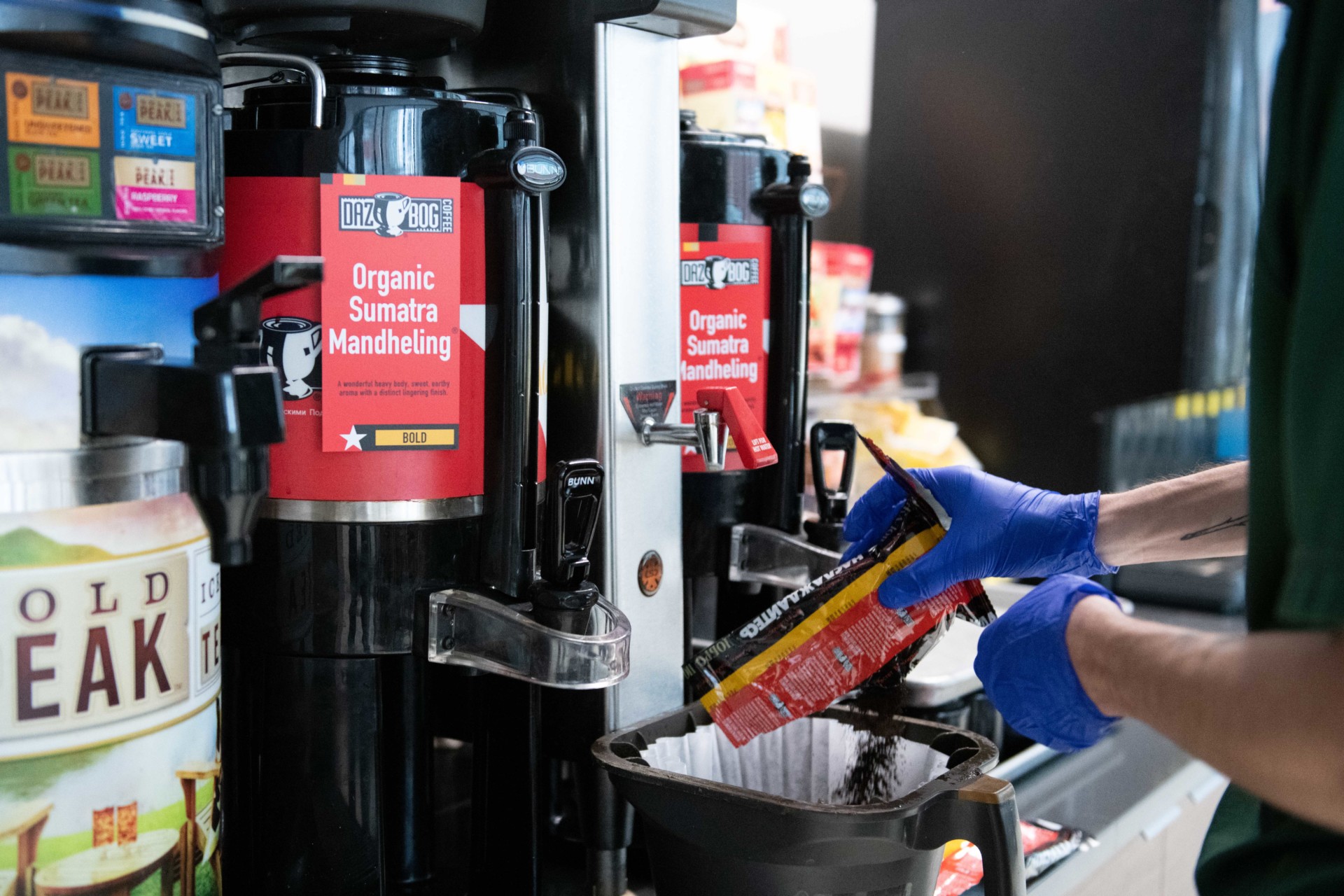
Organic coffee is coming to CSU’s residential dining centers through a new partnership with Dazbog Coffee.
The most commonly consumed beverage in the U.S. is about to get a boost on Colorado State University’s campus.
Through a new partnership with Dazbog Coffee, CSU Housing & Dining Services is now offering organic coffee in the residential dining centers on campus. Students, faculty, staff and visitors are now treated to organic Dazbog Sumatra coffee as the standard offering.
Considered to be a premium and more sustainable choice, organic coffee typically has been more expensive than the non-organic variety. Dazbog Coffee, a Denver-based coffee company with three Fort Collins retail locations, has made the switch easy by offering CSU the organic at the same price as the non-organic.
“Housing & Dining Services Catering began using it, and when we realized we could be serving organic coffee at the same price as conventional in our dining centers, the switch made perfect sense,” said CSU’s Residential Dining Services Procurement Manager Joe Hostettler. “Having an organic option helps us work towards achieving the department’s sustainability goals and also contributes to our top rating for the college/university Sustainability Tracking Assessment & Rating System (STARS) score.”
Five ways to make your coffee habit more sustainable
1. Use a coffee press or moka pot. These handy devices can save you money as well as energy—and there’ll be no single-use plastics or filter papers in the making of your daily cup.
2. Choose organic and/or Fair Trade certified.
3. Get a reusable cup, and remember to bring it with you when grabbing coffee.
4. Compost your coffee grounds.
5. If you prefer to use coffee pods, choose biodegradable/compostable, or refillable.
Understanding organic coffee
The term “organic” is strictly regulated by the U.S. Department of Agriculture, which has established an organic certification program that requires all organic foods to meet strict government standards. These standards regulate how such foods are grown, handled and processed.
In the case of coffee farms, this seal indicates that products such as synthetic fertilizers and synthetic pesticides are banned – products that can be harmful to farmers and to wildlife. The label also ensures that soil quality is protected. Other less regulated claims on coffee packaging labels that seemingly indicate a product’s environmental impact and trade policies are essentially meaningless.
In fact, terms such as “ethically/sustainably farmed,” “shade grown” and “direct trade” lack any legal definition or industry standards. Fairtrade is another certification that carries clout as it sets standards for the way coffee is produced, and how much a farmer/farming cooperative earns per pound of coffee sold. Although some coffee qualifies for both certifications, farmers may qualify and choose none or only one certification, as these labels can get pricey.
Offering organic coffee helps CSU meet our sustainability goals, as well as providing health benefits, which tend to point toward the positive. It’s fair to acknowledge that organic coffee can be higher in antioxidants, vitamins and minerals. Being organic also means that it is free of potential pesticides and artificial fertilizers, reducing the risk of ingesting harmful chemicals.
Additionally, drinking organic coffee is beneficial to the environment because it supports coffee farmers who utilize low impact organic farming practices. Non-organic farmers often spray large amounts of pesticides, contaminating the water supply and oversaturating the soil with nutrients, which causes harm to other plants and animals in the ecosystems surrounding coffee farms.
The campus dining centers have been making the switch gradually, as the non-organic varieties are used and replaced with organic. Dining center patrons are being made aware of this change through updated signage on the Dazbog carafes.